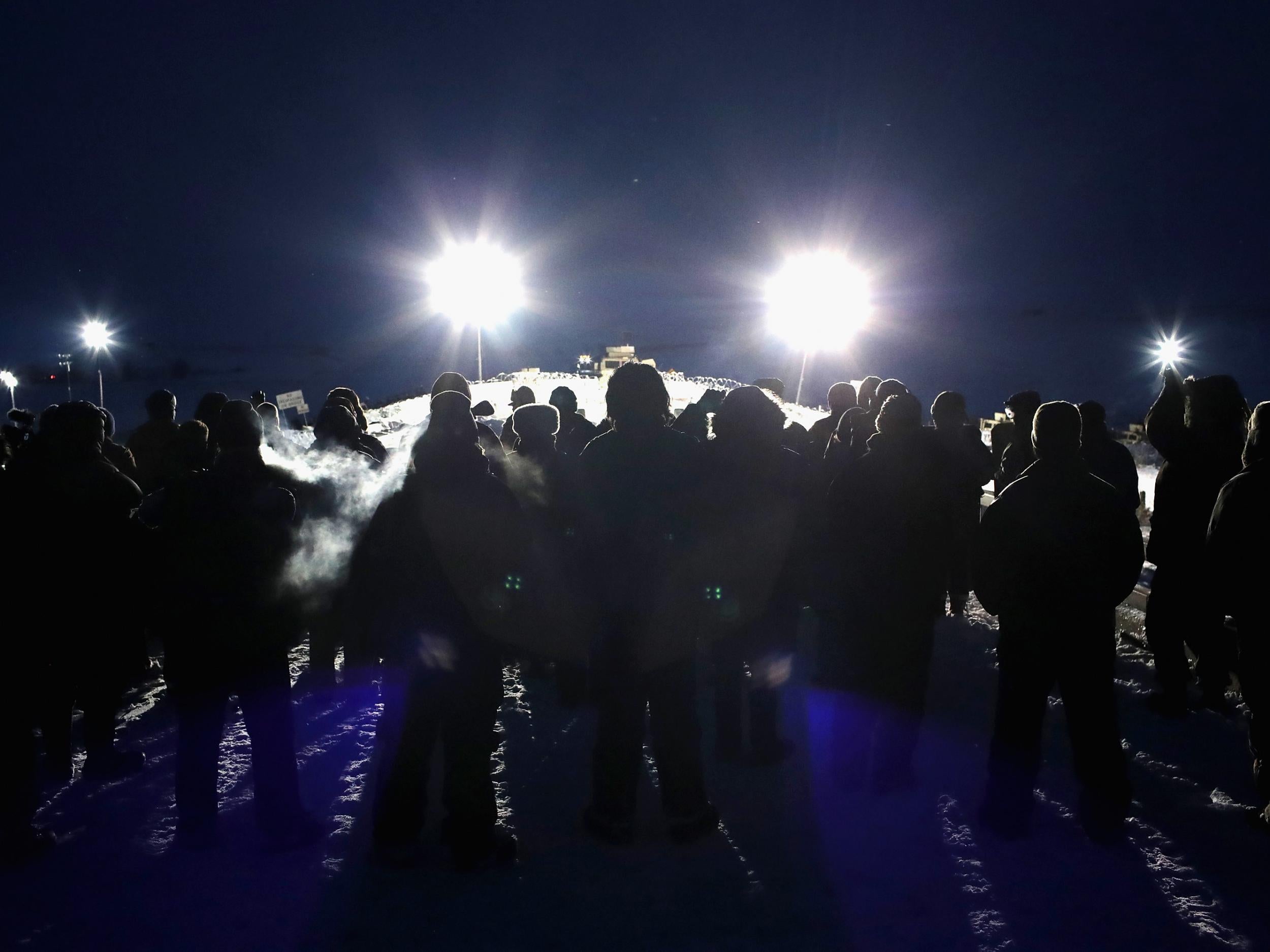More than 2,000 veterans acting as human shields at Standing Rock protests
'I figured this was more important than anything else I could be doing,' said 69-year-old Vietnam War veteran Guy Dull Knife

Your support helps us to tell the story
From reproductive rights to climate change to Big Tech, The Independent is on the ground when the story is developing. Whether it's investigating the financials of Elon Musk's pro-Trump PAC or producing our latest documentary, 'The A Word', which shines a light on the American women fighting for reproductive rights, we know how important it is to parse out the facts from the messaging.
At such a critical moment in US history, we need reporters on the ground. Your donation allows us to keep sending journalists to speak to both sides of the story.
The Independent is trusted by Americans across the entire political spectrum. And unlike many other quality news outlets, we choose not to lock Americans out of our reporting and analysis with paywalls. We believe quality journalism should be available to everyone, paid for by those who can afford it.
Your support makes all the difference.More than 2,000 US military veterans plan to form a human shield to protect protesters against a pipeline project near a Native American reservation in North Dakota, organisers said.
Meanwhile, North Dakota law enforcement will not make spot checks on vehicles headed to the camp where activists are based, the governor's office said on Wednesday, backing away from a previous plan.
Activists have spent months protesting plans to route the $3.8 billion (£3 billion) Dakota Access Pipeline beneath a lake near the Standing Rock Sioux reservation, saying it poses a threat to water resources and sacred Native-American sites.
The 1,172-mile (1,885 km) pipeline project, owned by Texas-based Energy Transfer Partners LP, is mostly complete, except for a segment planned to run under Lake Oahe, a reservoir formed by a dam on the Missouri River.
“I figured this was more important than anything else I could be doing,” Guy Dull Knife, 69, a Vietnam War Army veteran, told Reuters at the main camp.
Dull Knife, a member of the Oglala Lakota tribe from the Pine Ridge Reservation of South Dakota, said he has been camping at the protest site for months.
Veterans Stand for Standing Rock, a contingent of more than 2,000 US military veterans, intends to go to North Dakota and form a human wall in front of police, protest organisers said on a Facebook page. Organisers could not immediately be reached to comment.
Morton County Sheriff's Office spokesman Rob Keller said in an email his agency was aware of the veterans' plans, but would not comment further on how law enforcement will deal with demonstrators.
Former US Marine Michael A. Wood Jr is leading the effort along with Wesley Clark Jr, a writer whose father is retired US Army General Wesley Clark.
US Representative Tulsi Gabbard, a Democrat from Hawaii and a major in the Hawaii Army National Guard, has said on Twitter she will join the protesters on Sunday.
The veterans will bolster the thousands of people protesting at camps located on US Army Corps of Engineers land, north of the Cannonball River in Cannon Ball, North Dakota.
The Army Corps, citing safety concerns, has ordered the evacuation of the primary protest camp by 5 December, but said it would not forcibly remove people from the land.
The state's latest decision to avoid making spot checks on cars entering the protest site indicates local officials will not actively enforce Monday's emergency order to evacuate the camp issued by Governor Jack Dalrymple, who had cited a coming blizzard.
Local law enforcement said on Tuesday they planned a blockade of the camp, but local and state officials later retreated, saying they would only check vehicles for certain prohibited supplies like propane, and possibly issue fines.
“The governor has said there will be no checkpoints, no stopping of vehicles,” said Jeff Zent, a spokesman for Dalrymple.
Reuters
Join our commenting forum
Join thought-provoking conversations, follow other Independent readers and see their replies
Comments